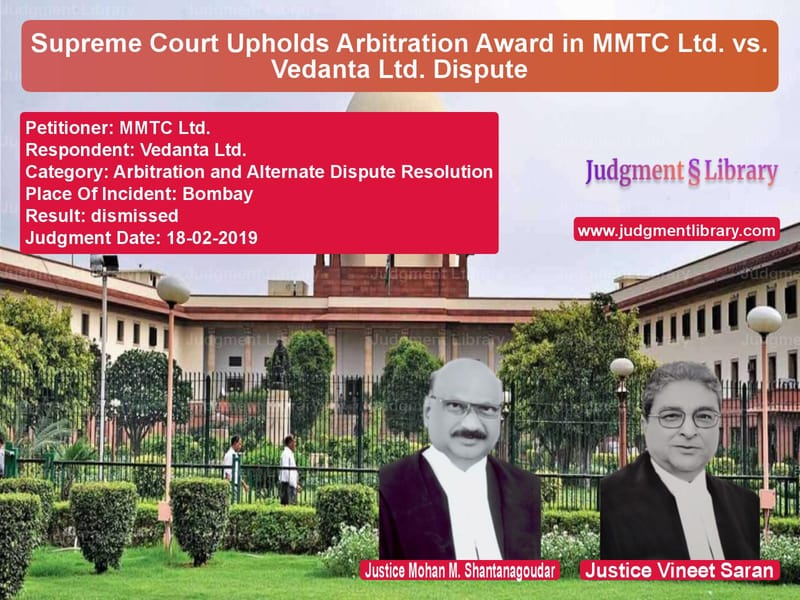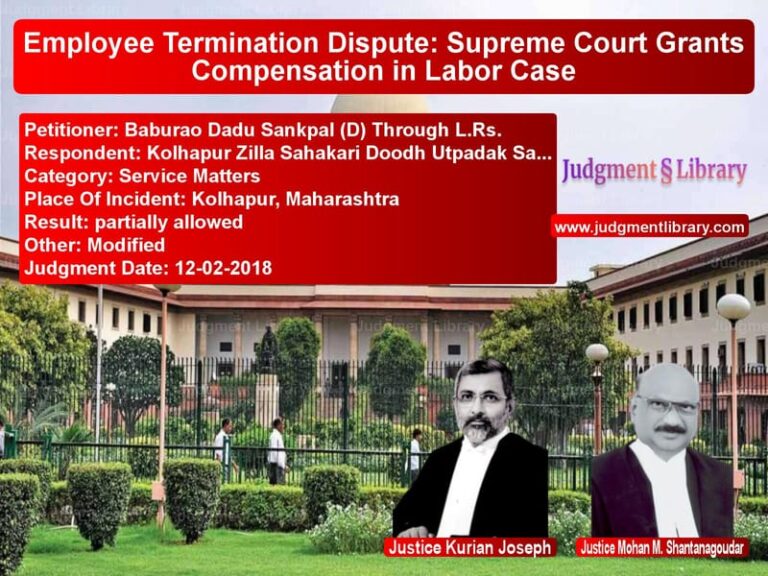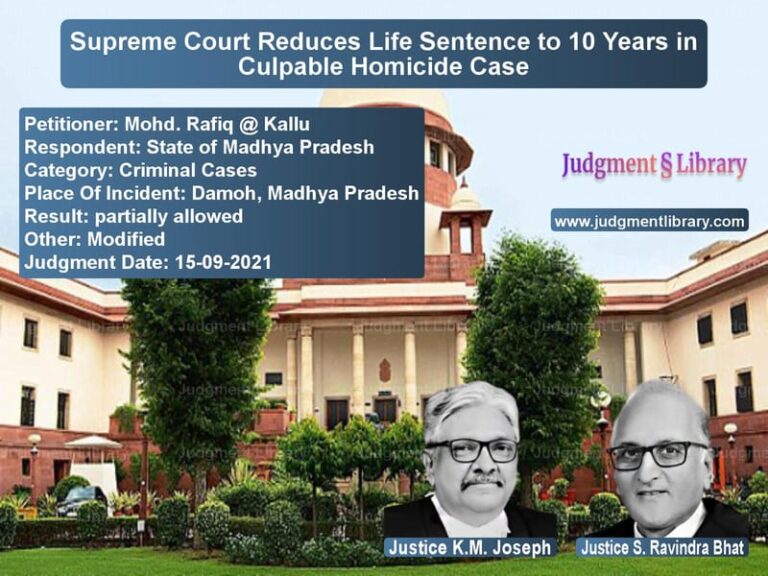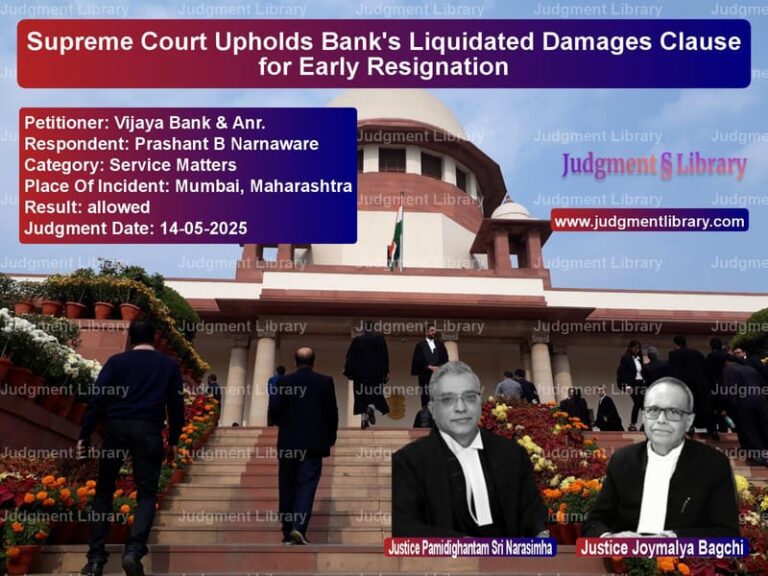Supreme Court Upholds Arbitration Award in MMTC Ltd. vs. Vedanta Ltd. Dispute
The Supreme Court of India, in MMTC Ltd. vs. Vedanta Ltd., ruled on the validity of an arbitral award concerning a commercial dispute over non-payment of dues. The case involved an agreement between MMTC Ltd., a government entity, and Vedanta Ltd., formerly known as Sterlite Industries (India) Ltd., for the consignment and marketing of copper rods.
Background of the Case
The dispute arose from an agreement dated December 14, 1993, under which MMTC was to act as a consignment agent for Vedanta, handling storage, sales, and invoicing of copper rods. Initially, MMTC was required to sell the goods only against 100% advance payment from customers, but subsequent amendments allowed MMTC to supply goods on credit against a letter of credit.
Between April 1995 and February 1996, MMTC supplied copper rods to Hindustan Transmission Products Ltd. (HTPL), a customer arranged by Vedanta. However, HTPL defaulted on payments, leading to a financial dispute between MMTC and Vedanta. Vedanta invoked the arbitration clause, alleging MMTC’s failure to ensure payment collection.
Arbitral Award and High Court Ruling
The dispute was referred to a three-member arbitral tribunal, which, by a majority award dated June 27, 2001, directed MMTC to pay Vedanta:
- Rs. 15.73 crore with 14% interest per annum from February 5, 1997, till the award date.
- 18% interest per annum on the amount due beyond the award date.
- Rs. 2.25 crore as interest on overdue payments up to February 5, 1996.
MMTC challenged the award before the Bombay High Court under Section 34 of the Arbitration and Conciliation Act, 1996, arguing that the dispute was not arbitrable. The High Court dismissed the objections, leading MMTC to file an appeal before the Supreme Court.
Supreme Court’s Observations
1. Limited Scope of Judicial Interference
The Court reaffirmed that judicial review of arbitral awards under Sections 34 and 37 of the Arbitration Act is limited. It held:
“The Court does not sit in appeal over an arbitral award. Interference is permissible only if the award is against the fundamental policy of Indian law, against justice or morality, or suffers from patent illegality.”
2. Arbitrability of the Dispute
MMTC argued that transactions involving HTPL were outside the scope of the 1993 agreement and should not have been subjected to arbitration. However, the Court found that:
- MMTC received commission for sales made to HTPL.
- HTPL transactions were conducted as per the existing agreement.
- MMTC had a responsibility to ensure payment collection.
The Court concluded:
“The supplies to HTPL were not independent of the 1993 agreement. The arbitration clause was applicable, and the dispute was validly adjudicated.”
3. Conduct of MMTC
The Court noted that MMTC failed to:
- Ensure that HTPL’s letters of credit were honored.
- Take timely action to recover dues.
- Object to the HTPL transactions during the agreement period.
It observed:
“The negligence of MMTC in securing payments cannot be a ground to set aside the award.”
Final Judgment
The Supreme Court dismissed MMTC’s appeal, affirming the Bombay High Court’s ruling. It held that:
- The arbitration proceedings were valid and within jurisdiction.
- The arbitral award was based on a reasonable interpretation of contract terms.
- There was no legal ground for setting aside the award under Section 34.
Key Takeaways
- Limited scope of judicial interference: Courts cannot re-evaluate arbitral awards unless they violate fundamental legal principles.
- Arbitration clauses must be honored: If a contract includes an arbitration clause, disputes arising from it are subject to arbitration.
- Due diligence in commercial transactions: Companies must ensure proper safeguards when extending credit.
- Responsibility for collection: Agents handling sales and invoicing are accountable for payment collection.
- Commercial agreements must be strictly adhered to: Modifications to contracts must be explicitly documented.
Conclusion
The Supreme Court’s ruling in MMTC Ltd. vs. Vedanta Ltd. reinforces the principle that arbitration awards are binding unless they suffer from serious legal defects. This judgment strengthens the enforceability of commercial arbitration and provides clarity on an agent’s liability in financial transactions.
Petitioner Name: MMTC Ltd..Respondent Name: Vedanta Ltd..Judgment By: Justice Mohan M. Shantanagoudar, Justice Vineet Saran.Place Of Incident: Bombay.Judgment Date: 18-02-2019.
Don’t miss out on the full details! Download the complete judgment in PDF format below and gain valuable insights instantly!
Download Judgment: MMTC Ltd. vs Vedanta Ltd. Supreme Court of India Judgment Dated 18-02-2019.pdf
Direct Downlaod Judgment: Direct downlaod this Judgment
See all petitions in Arbitration Awards
See all petitions in Commercial Arbitration
See all petitions in Enforcement of Awards
See all petitions in Judgment by Mohan M. Shantanagoudar
See all petitions in Judgment by Vineet Saran
See all petitions in dismissed
See all petitions in supreme court of India judgments February 2019
See all petitions in 2019 judgments
See all posts in Arbitration and Alternate Dispute Resolution Category
See all allowed petitions in Arbitration and Alternate Dispute Resolution Category
See all Dismissed petitions in Arbitration and Alternate Dispute Resolution Category
See all partially allowed petitions in Arbitration and Alternate Dispute Resolution Category







